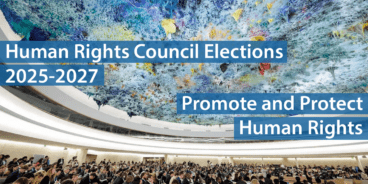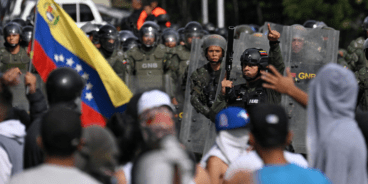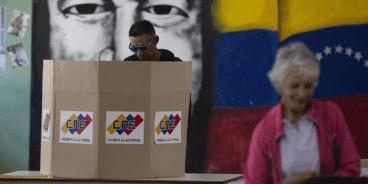
Statement Ahead of the 4 March Elections in Kenya
On 4 March Kenyans will vote in highly anticipated general elections. This will be the first national ballot since 2007/8 post-election violence resulted in the death of 1,133 Kenyans and displaced over 600,000. At the time international actors responded swiftly to halt the unfolding crimes against humanity, crimes that states committed themselves to protect populations from when adopting the Responsibility to Protect at the 2005 United Nations World Summit. The resulting African Union-led mediation process, supported by the United Nations, is widely cited as the first successful example of the Responsibility to Protect in practice.
With one week until the 2013 elections, there is again a risk of violence and potential mass atrocity crimes. It is imperative that the Kenyan government, with the support of the African Union, United Nations and local civil society, intensify efforts to prevent a recurrence of the widespread ethnic violence that devastated Kenya and shocked the world in 2007/8.
Kenya has recently experienced a disturbing increase in inter-communal violence. According to the United Nations Office for the Coordination of Humanitarian Affairs, over 400 people were killed and over 112,000 displaced during 2012. Potential flashpoints for the 2013 elections are more numerous than in 2007, including many impoverished, remote and rural parts of the country. The most vulnerable areas are in Eastern, North Eastern, Rift Valley and Coast provinces. Many of these areas are already experiencing fierce electoral contests where the mobilization of supporters along ethnic lines to gain or retain political power remains a mainstay of campaigning.
Since 2007/8 the government of Kenya has undertaken major political, judicial and electoral reforms in order to prevent a recurrence of mass atrocity crimes. However, recent conflicts in the Tana River and elsewhere demonstrate that deep ethnic and political tensions persist. Vital security sector reform is yet to be rigorously implemented.
In the case of the Tana River, the police were unable to prevent recent atrocities even in cases where they had received early warning of impending attacks. Security gaps have also contributed to the growth of ethnic-based militias and the proliferation of small arms. As in 2007/8, capacity issues and excessive use of force means that in some cases the police may actually pose a threat to civilians they are supposed to protect.
Our hope is that Kenya will be an example of how an investment in prevention by domestic, regional and international actors can save lives. Now is the time for the Kenyan government, with the support of the international community, to intensify efforts to uphold the Responsibility to Protect. For this to happen it is imperative that strategies to offset possible triggers of violence continue to be prioritized, alongside the development of contingency plans should preventive efforts fail.
Necessary action:
-
- The government of Kenya should uphold its Responsibility to Protect by:
- Intensifying civic education efforts that explain the electoral process and the legal avenues available for contestation of disputed results;
- Deploying security forces to flashpoints during the election period, while ensuring they abide by international law and standards on the use of force and protecting all Kenyans irrespective of ethnic identity;
- Reminding all Kenyans, including the security forces and government officials that they will be held responsible for inciting, aiding or perpetrating mass atrocity crimes.
- The international community should assist the government of Kenya by:
- Supporting the Independent Electoral and Boundaries Commission in holding credible and free elections;
- Ensuring that the Kenyan Chief Justice has the resources to adjudicate electoral disputes in a timely manner;
- Developing contingency plans to rapidly halt mass atrocities should preventive measures fail; o Being prepared to use targeted sanctions to deter those who may seek to foment violence.
- The government of Kenya should uphold its Responsibility to Protect by:
Related Content


